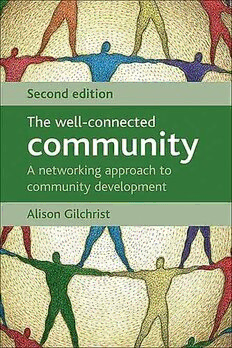
The Well-Connected Community: A Networking Approach to Community Development, 2nd Edition PDF
250 Pages·2009·5.123 MB·English
Most books are stored in the elastic cloud where traffic is expensive. For this reason, we have a limit on daily download.
Preview The Well-Connected Community: A Networking Approach to Community Development, 2nd Edition
Description:
Under the UK's New Labour government, policy interest has grown with regards to the contribution that communities can make to civil society and democratic renewal. Key programs, particularly those promoting regeneration and renewal, require community participation in partnerships and public decision-making. This fully revised second edition demonstrates how informal and formal networks strengthen communities and improve partnership working. The book examines the benefits and limitations of networks in supporting self-help, collective action, and multi-agency arrangements in the UK. It presents recent research on community development practice and develops useful links between theory, policy, and practice. It addresses important issues around equality, diversity, and social cohesion, while also providing recommendations for good networking practice.
See more
The list of books you might like
Most books are stored in the elastic cloud where traffic is expensive. For this reason, we have a limit on daily download.
